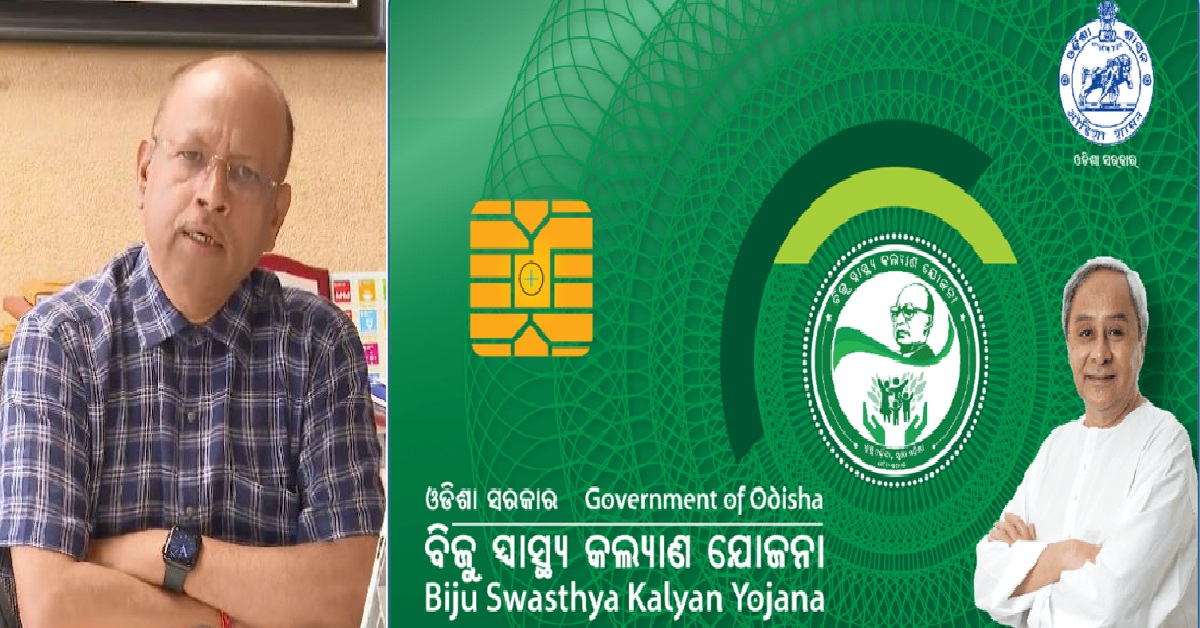In response to claims that certain private hospitals have been refusing cashless services to beneficiaries during the transition phase, the Odisha government has assured holders of Biju Swasthya Kalyan Yojana (BSKY) cards that they will continue to receive care. This guarantee addresses worries and misunderstandings raised by the Bharatiya Janata Party’s (BJP) declaration that, should it win state administration, it intends to replace the BSKY with the Ayushman Bharat scheme.
A major problem now is the uncertainty surrounding the sustainability of BSKY benefits, particularly with the BJP seemingly set to seize power in Odisha. According to sources, certain hospitals have allegedly started refusing to acknowledge BSKY benefits, which has left individuals who depend on this program for their medical requirements confused and anxious. This has given rise to claims that these hospitals are foregoing cashless treatments ahead of schedule out of concern that the program would be discontinued and that their debts might not be paid once the government changes.
Chief Secretary P.K. Jena has made an effort to allay these worries by restating the government’s endorsement of the BSKY program. He made it clear that BSKY cardholders will still receive care in hospitals that are affiliated. Jena underlined that the plan will continue to function as anticipated because the memorandums of understanding (MoUs) inked with these hospitals are still in effect. He emphasized that, in order to protect patient interests, all accredited hospitals have received orders from the government to continue providing their services as usual.
The department of health and family welfare has reaffirmed its promise by releasing an official statement that makes clear that the BSKY program is still in operation and is funded by a budget that has been approved. Hospitals have been instructed by the department to make sure that patients don’t experience any problems or interruptions when using the program’s services. This explicit order attempts to reassure beneficiaries and healthcare professionals alike that their healthcare requirements will continue to be met and that the program is not going away.
Jena also talked on compliance, stating that hospitals that are found to be disobeying government directives by refusing treatment under the BSKY program will suffer severe penalties. This alert is meant to prevent hospitals from turning away BSKY cardholders due to unfounded worries about the program’s viability. He also exhorted people who are denied medical care to file complaints with the health department by calling their number, 104. This hotline is an essential resource for tracking and resolving any problems arising from the scheme’s implementation.
Statistics demonstrating that on June 4, empaneled hospitals scheduled treatment packages for over 5,800 patients, and on June 5, treatment packages were scheduled for over 5,389 patients, highlight the continued dedication to the BSKY system. According to this data, the program is still an essential part of the state’s healthcare system and is actively providing services to a sizable number of users.
In response to media reports exposing the misunderstanding surrounding BSKY health cards and the claims that recipients are being denied access to healthcare facilities, Governor Raghubar Das has voiced grave worry. He has given Chief Secretary Jena instructions to act quickly and appropriately to clear up any misunderstandings and guarantee that beneficiaries continue to receive healthcare services. The Governor’s decree emphasizes how critical it is to preserve the BSKY scheme’s continuity and integrity during this time of political upheaval.
With political transitions sometimes bringing uncertainty, private hospitals’ concerns about the program’s possible termination and the non-clearance of their dues are not unjustified. To allay these worries, though, are the government’s promises and the explicit instructions given to the hospitals. The administration is committed to preserving BSKY beneficiaries’ continuity of care and making sure that their medical requirements are met throughout this change.
The state of affairs in Odisha serves as a stark reminder of how crucial it is to have clear instructions and efficient lines of communication during periods of political upheaval, particularly when it comes to crucial public services like healthcare. To prevent any disturbance in the provision of healthcare, the BSKY system, which offers numerous individuals essential health benefits, must continue to function efficiently. In order to preserve public trust and guarantee that healthcare services continue to be available to all BSKY cardholders, the government’s proactive response to the issues and clarification of the scheme’s status is commendable.
To protect the healthcare benefits for lakhs of beneficiaries, the Odisha government has pledged to continue the Biju Swasthya Kalyan Yojana (BSKY) in spite of claims that certain private institutions have refused to provide services during the transition phase. The BSKY plan continues to be operational and is funded by the required funds, as stated in the government’s explicit directions and the department of health and family welfare’s official declaration. Hospitals are being warned not to defy government instructions, and a helpline for complaints is available. These actions are part of a comprehensive plan to guarantee compliance and continue providing services. The involvement of Governor Raghubar Das emphasizes the importance of the matter and the dedication to clearing up any misunderstanding as soon as possible. During this time of political transition in Odisha, the continued operation of the BSKY scheme is essential to maintaining public trust and ensuring the well-being of the state’s residents.
SOURCE:
THE ECONOMIC TIMES








